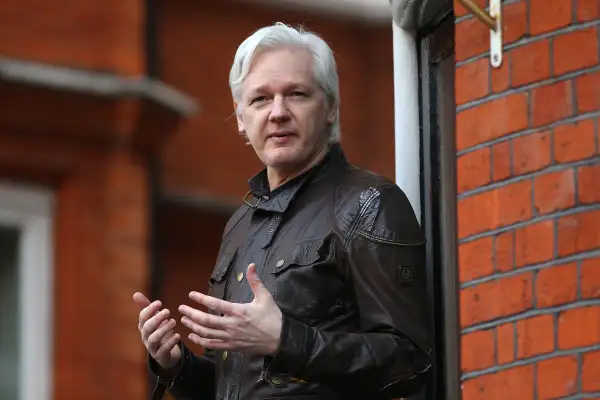Julian Assange Says Wikileaks Has Made a 50,000% Return on Bitcoin. Here's What That Means

Wikileaks has seen an amazing return on investments in bitcoin, founder Julian Assange says, and he is "thanking" the U.S. government for forcing the controversial organization to get into bitcoin in the first place.
In a Tweet on Saturday, Assange said the group's investment in the cryptocurrency has seen a return greater than 50,000% since 2010. Wikileaks began investing in bitcoin back then because global payment processors like Visa, Mastercard, and Paypal were under pressure by the U.S. government to block the ability of the group to take payments.
In fact, Bitcoin has seen a more-than 9 million percent return over the dates Assange references. In certain periods in 2010, bitcoin was trading for mere pennies. According to coindesk.com, one unit of bitcoin is now worth a record high of roughly $5,700. Anyone buying bitcoin through much of 2011 and 2012, when one unit was sometimes trading below $1 and was often under $10, would indeed see a return on investment of more than 50,000%, assuming they never sold.
However, it's impossible to know how much money Wikileaks has made with bitcoin, because no information is available showing exactly when the group began investing, how much was invested, and how and when deposits and withdrawals took place over the years.
In December 2016, Bitcoin Magazine reported the value of WikiLeaks’ public Bitcoin donation address added up to almost $3 million at contemporary prices, with the organization receiving most donations throughout 2011 and 2012. Today that account shows only about $43,000.
So, there is no way to verify when or how that purported 50,000% return might have been achieved.
Wikileaks was founded in 2006, but gained worldwide notoriety in 2010 after it published diplomatic cables leaked to it by Chelsea Manning. Afterward, MasterCard and Visa announced they would be cutting off access to the group because it was "engaging in or facilitating" illegal activity. Meanwhile, a PayPal representative said in 2012 that his company had come under pressure from the U.S. state department to cut payment links with the site, according to the Guardian.
Some Wikileaks supporters initially cautioned the group against accepting bitcoin. "I make this appeal to Wikileaks not to try to use bitcoin," a message from "Satoshi Nakamoto," the pseudonym credited for designing bitcoin, stated in a forum in late 2010, according to Wired. "Bitcoin is a small beta community in its infancy. You would not stand to get more than pocket change, and the heat you would bring would likely destroy us at this stage.
But without the ability to accept payments from mainstream processing systems, Wikileaks Tweeted in 2011 that it was accepting donations in units of bitcoin:
Assange remains a target for federal prosecutors. In April 2017, CNN reported that the U.S. was preparing charges against Assange for allegedly facilitating the publishing of the documents leaked by former NSA contractor Edward Snowden.
On Sunday, Hillary Clinton told an Australian news outlet she believes Wikileaks is "now practically a fully owned subsidiary of Russian intelligence."